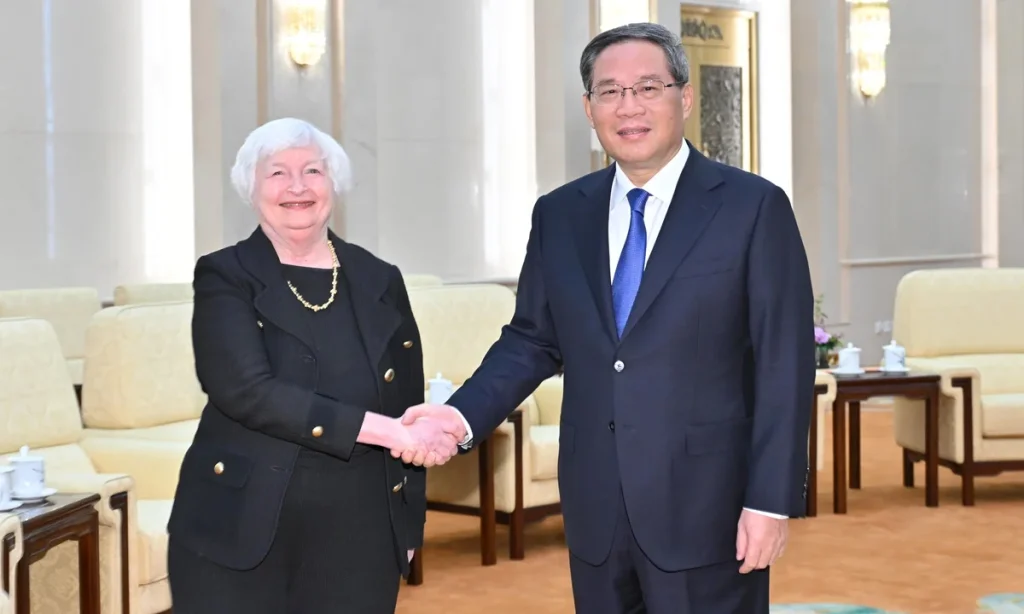A bipartisan group of U.S. lawmakers visited Beijing on September 21, 2025, to meet Chinese Premier Li Qiang. The delegation emphasized the need to improve U.S.-China relations, describing the trip as a step toward easing years of growing tension between the two global powers.
This marks the first official visit by members of the U.S. House of Representatives to China since 2019, highlighting a renewed push for dialogue after a long diplomatic pause.
Reviving Dialogue After Years of Strain
Formal visits from American legislators stopped in 2020 with the outbreak of the COVID-19 pandemic. Since then, relations have soured over issues ranging from the virus’s origins and trade disputes to semiconductor policies, TikTok’s ownership, the South China Sea, and Taiwan.
Representative Adam Smith, a Democrat and former chair of the House Armed Services Committee, led the delegation. He described the visit as an “ice-breaking” mission intended to restart channels of communication.
Calls for More Engagement
“This visit should not be the first in six or seven years,” Smith told Premier Li, according to a U.S. Embassy report. “We need consistent exchanges to strengthen the relationship.”
Premier Li welcomed the lawmakers, stressing that greater dialogue could help both countries move forward. The visit followed a recent phone call between U.S. President Donald Trump and Chinese President Xi Jinping, which signaled renewed interest in stabilizing ties.
Historical Tensions Around Taiwan
Relations between Washington and Beijing worsened during the pandemic years, with American lawmakers shifting more attention to Taiwan. Beijing claims the island as its own, and past visits by U.S. officials have angered Chinese leaders.
-
In 2022, then-House Speaker Nancy Pelosi’s Taiwan trip triggered large-scale Chinese military exercises.
-
In 2023, Representative Michael McCaul’s visit to Taipei led to sanctions and Beijing’s promise to increase military readiness.
These incidents underscored how sensitive Taiwan remains in U.S.-China relations.
Looking Forward
Despite ongoing disputes over trade and security, the Beijing meetings represent a renewed willingness on both sides to engage. Lawmakers stressed that regular dialogue is essential to managing competition and avoiding further conflict.
As U.S.-China relations continue to evolve, such high-level exchanges could pave the way for more constructive cooperation on global issues.






